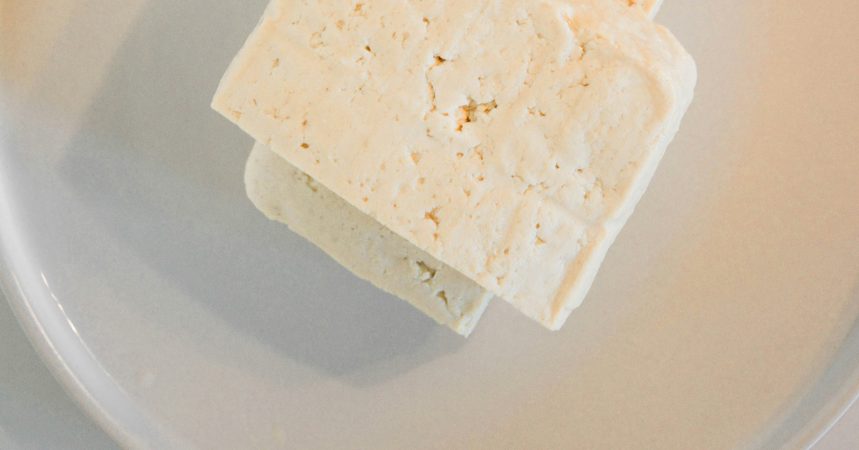Ditch the dairy! Get your calcium from beans, nuts, greens, and more.
You know the dairy industry’s marketing slogans. You can probably recite their most famous one now. Hint: It has to do with a mustache. You’ve been taught that cow's milk is necessary for strong bones and teeth. And, whether from the Food Pyramid or MyPlate, you know that you need it every day. But do you? Are there good plant-based calcium sources that work equally well?
What Does Calcium Do for Your Body?
Before we address the topic of plant-based calcium sources, let’s take a look at what the nutrient does for your body. Yes, it builds strong bones and teeth. But you also need calcium for proper nerve function and blood clotting. Additionally, your heart and muscles rely on calcium to properly contract and relax. Too little calcium and you may suffer muscle cramps, brittle nails, numbness, tingling, and fatigue, among others. So, was the marketing correct? Do you need dairy?
Why Is Dairy Not a Good Source of Calcium?
If you are wondering why dairy is not a good source of calcium, we’re here to help. Studies have consistently shown that milk from cows, as well as other dairy products, may contribute to heart disease, type 2 diabetes, Alzheimer’s, and certain cancers. Cow’s milk also contains sex hormones such as estrogen which may contribute to acne, reduced male reproductive potential, and more. And, because most adults are lactose intolerant, symptoms of consuming dairy may include bloating, gas, stomach cramps, and diarrhea. But how will you get this important nutrient in if you don’t drink milk from a cow?
What Is the Best Plant-Based Calcium?
Plants to the rescue! There are some great plant-based calcium sources out there. But produce farmers don’t have the major marketing dollars that the dairy industry does. So, they tend to be a little quiet about the benefits of their product. But we’re here to shout it from the rooftops. Eat your beans! And other things. You don’t need dairy to meet your daily calcium requirements. You can get all the calcium you need from plants. Okay, then, what are some of the best foods for this vital nutrient? Well, read on. Because we’re about to share.
Beans
For plant-based sources of calcium, think “beans and greens.” Kidney beans are the powerhouse here, coming in at almost as much calcium as a cup of 2% dairy milk. Chickpeas are heavy hitters as well. Edamame, cannellini beans, and Great Northern beans are other nutrient-rich choices. Add beans to soups, bean salads, burritos, and beyond. And keep it simple. Dried beans are great. But canned beans work just fine as a reliable source of calcium.

Courtesy of Unsplash/Deryn Macey
Greens
Greens fit easily into any meal. Whether you’re making a stir-fry, garden salad, tacos, or pizza, greens are always welcome. Green smoothie, anyone? One of our favorite dishes is what we call “beans, greens, and grains.” Add beans and greens of any kind to a bed of brown rice for a calcium-rich meal. Bonus points for topping this with roasted veggies, including calcium boosters like butternut squash and sweet potatoes. Leading calcium-rich greens include collard greens, kale, broccoli, and bok choy.

Courtesy of Unsplash/Deborah Rainford
Tofu
Tofu is a great source of calcium! The amount it contains depends on the brand and type of tofu. Calcium-set tofu will generally be richer in the nutrient, but because tofu is made from soybeans, all forms are a good source. Try cubing the tofu, seasoning, and baking. Then add it to pasta dishes, Buddha bowls, and salads. Or cut in slices, dredge in bread crumbs, sauté, and use in wraps. Why not go big and cook up a tofu scramble with beans and greens? See what we did there?

Courtesy of Unsplash/Kamala Bright
Almonds
Almonds are an unexpected excellent plant-based calcium source. Sauté slivered almonds into green beans, add to oatmeal or granola, and snack on them by the handful. Fortified almond milk is another great way to work this one in. Healthy fats, vitamin E, and magnesium are just a few of the other benefits from almonds. So, enjoy supple skin, manage your blood sugar levels, and benefit from strong bones and teeth.

Courtesy of Unsplash/Tetiana Bykovets
Disclaimer: This article is intended for informational and educational purposes only. It is not a substitute for professional medical advice, diagnosis, or treatment. Always seek the guidance of a qualified healthcare provider before making changes to your diet or supplement routine, especially if you have existing health conditions or are taking prescription medications. Nutritional needs can vary from person to person.














